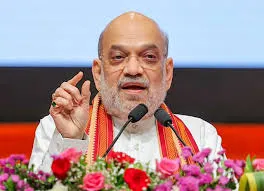

Bhubaneswar, Mar 5: Union Home & Cooperation Minister Amit Shah’s Odisha visit which was scheduled today, has been deferred.
Shah’s Odisha visit has been rescheduled for tomorrow, said government sources.
According to report, Shah’s Odisha visit was postponed at the eleventh hour on Thursday, reportedly for JDU Chief Nitish Kumar’s nomination for the Rajya Sabha. Shah has joined the occasion in Bihar, that almost emerged all of a sudden.
Shah was set to arrive in Odisha on Thursday evening for a two-day visit. officials said. He would have landed in Bhubaneswar from New Delhi aboard an independent Air Force aircraft.
On Friday morning, Shah would have attend the CISF Foundation Day programme at Munduli, Cuttack. In the afternoon, he was scheduled to perform the foundation-laying ceremonies for the National Forensic Science University (NFSU) and the Central Forensic Science Laboratory (CFSL) campuses in Bhubaneswar. He would have also inaugurated the NFSU Transit Campus in the city through virtual medium.
Following the Bhubaneswar events, Shah would have visited the Nabina Judicial Complex exhibition to inaugurate various projects of the Cooperative and other departments, and lay foundation stones for multiple initiatives across the city.